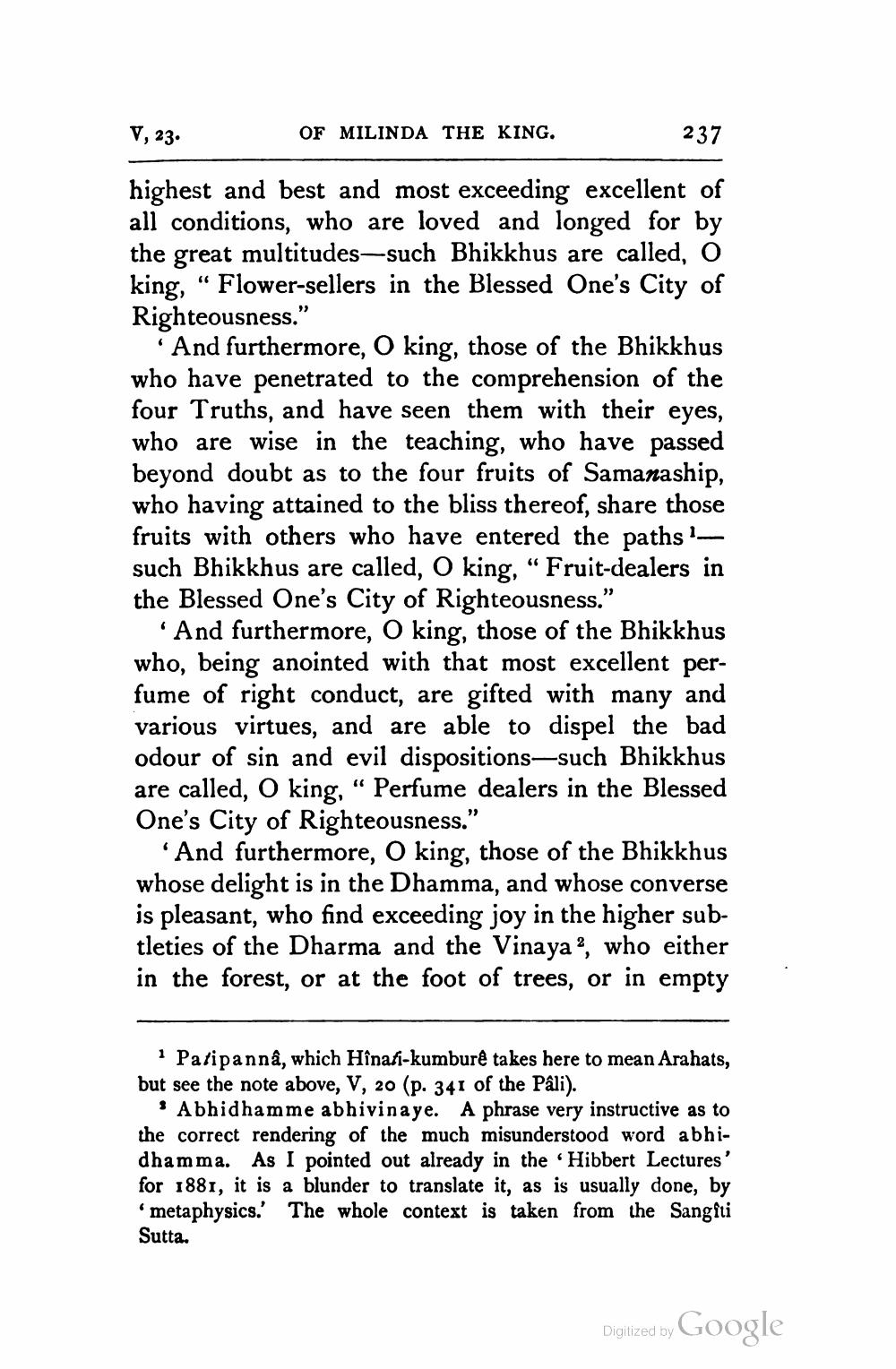________________
V, 23.
OF MILINDA THE KING.
237
highest and best and most exceeding excellent of all conditions, who are loved and longed for by the great multitudes-such Bhikkhus are called, O king, “ Flower-sellers in the Blessed One's City of Righteousness."
And furthermore, O king, those of the Bhikkhus who have penetrated to the comprehension of the four Truths, and have seen them with their eyes, who are wise in the teaching, who have passed beyond doubt as to the four fruits of Samanaship, who having attained to the bliss thereof, share those fruits with others who have entered the paths - such Bhikkhus are called, O king, “Fruit-dealers in the Blessed One's City of Righteousness."
And furthermore, O king, those of the Bhikkhus who, being anointed with that most excellent perfume of right conduct, are gifted with many and various virtues, and are able to dispel the bad odour of sin and evil dispositions—such Bhikkhus are called, O king, “ Perfume dealers in the Blessed One's City of Righteousness."
'And furthermore, O king, those of the Bhikkhus whose delight is in the Dhamma, and whose converse is pleasant, who find exceeding joy in the higher subtleties of the Dharma and the Vinaya?, who either in the forest, or at the foot of trees, or in empty
1 Patipanna, which Hînafi-kumburê takes here to mean Arahats, but see the note above, V, 20 (p. 341 of the Pali).
· Abhidhamme abhivinaye. A phrase very instructive as to the correct rendering of the much misunderstood word abhidhamma. As I pointed out already in the Hibbert Lectures' for 1881, it is a blunder to translate it, as is usually done, by
metaphysics. The whole context is taken from the Sangiti Sutta.
Digitized by Google




